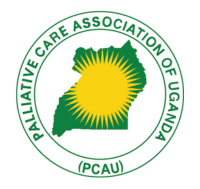On 2nd August 2023, the Executive Director of the Palliative Care Association of Uganda (PCAU), Mark Donald Mwesiga led a delegation to meet the Committee on Health Parliament of the Republic of Uganda. The delegation was composed of representatives from PCAU Members and partner organizations as well as the Ministry of Health.
During the engagement with members of Parliament, the palliative care stakeholders presented a Position Paper on the Narcotic Drugs and Psychotropic Substances (Control) Bill, 2023
According to the Centers for Disease Control USA, Narcotic drugs mean any substance that dulls the senses and relieves pain. Some people use the term to refer to all illegal drugs but technically, it refers only to opioids. Opioid is the preferred term to avoid confusion. Opioids are natural, synthetic chemicals that interact with receptors on nerve cells in the body and brain and reduce the intensity of pain signals and feelings of pain. Opioids include the illegal drug heroin, synthetic opioids such as fentanyl, and pain medications available legally by prescription, such as oxycodone, hydrocodone, morphine, and many others.

Globally, there has been misuse of opioids. This is proportionally high in the developed countries. Governments have a lot to control the illicit use of opioids including establishing tough laws. The challenge now however is that tough control legislation and enforcement is leaving millions in pain due to a lack of access to prescribed opioids. The world is now facing two crises related to the use of opioids. On the one hand, there is inappropriate use and over-prescription which is causing significant harm and loss of life. On the other hand, there is a dire lack of access to opioids such as morphine in many parts of the world which means that millions of people continue to suffer preventable pain.
Freedom from pain is a human right. The Single Convention on Narcotic Drugs of 1961 as amended in 1972 establishes a framework of dual obligation for Governments to: ensure the availability of drugs for medical purposes and prevent abuse and diversion.
While developing the new law, the government of Uganda needs to ensure that mistakes committed in the now-repealed Act do not surface. The principle of dual balance ought to be reflected in the new law and there should be no conflicting provisions to balance the control and use of opioids for medical and scientific purposes.
Uganda is a great example of efforts to ensure access to prescribed opioids especially oral liquid morphine for pain relief among many that face health-related suffering. Morphine is an essential medicine and a gold standard for pain relief that has been included in the World Health Organization (WHO) Model List of Essential Medicines since 1977. Since 1993 when Dr. Anne Merriman worked in partnership with the Ministry of Health to bring oral liquid morphine to Uganda, many patients have benefited. The government of Uganda has integrated this medicine into its Essential Medicines and Health Supplies List for Uganda (EMHSLU).
In 2004, the government of Uganda passed a statutory instrument allowing palliative care specially trained nurses and clinical officers to prescribe oral liquid morphine. This legal instrument has led to the expansion of palliative care services in Uganda. Statistics by the Palliative Care Association of Uganda show that at least 300 health facilities in 107 of the 146 districts and cities offer a form of palliative care. This would not have happened if the role of prescribing opioids was left only to medical officers. The 2004 statutory instrument should therefore be reinforced but not repealed by the new law. The law should ensure measures by the government on continuous professional education for key stakeholders such as law enforcement officers such the Antinarcotics Department of the Uganda Police. These be continuously educated and should respect the principle of dual balance while enforcing the law.

The efforts to regulate opioids in Uganda have also been supported by the Guidelines for Handling of Class A Drugs by the Ministry of Health. Lessons from these need to be further enforced in the new law. Increased access to therapeutic opioids in Uganda has happened without demonstrable evidence of illicit diversion.
In Uganda, only 11% of all people in need of palliative care access it. This means that most Ugandans facing health-related suffering still cannot access this care. Any legislation that prohibits access to prescribed opioids like morphine only serves to increase the amount of pain in the country.
Mark Donald Mwesiga
Executive Director – Palliative Care Association of Uganda (PCAU).
mark.mwesiga@pcau.org.ug mobile telephone +256 785 884 205


Comments are closed.